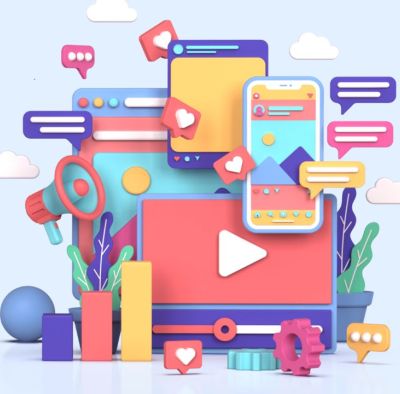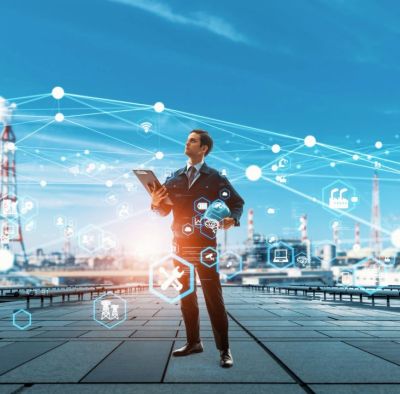UP DESH AI
Sales Jobs
Frontline Jobs
Finance Jobs
Healthcare Jobs
HR Jobs
Engineering Jobs
Operations/Quality Jobs
Creative Jobs
Logistics Jobs
Media Jobs
Construction Jobs
Retail/E-commerce Jobs
Telecom Jobs
BPO/Call Center Jobs
Fashion Jobs
Manufacturing Jobs
Real Estate Jobs
Event Management Jobs
Marketing Jobs
Jobs in Maharashtra
Jobs in Tamil Nadu
Jobs in Jharkhand
Jobs in Union Territory
Tech Support Jobs
I.T Infrastructure Jobs
IT Consulting Jobs
Frontend Development Jobs
Backend Development Jobs
Full Stack Development Jobs
UI/UX Design Jobs
Data Science and AI Jobs
Cloud Computing Jobs
Cybersecurity Jobs
Embedded and IoT Jobs
Testing and QA Jobs
IT Operations Jobs
Mobile App Development Jobs
Robotics and Automation Jobs
Database Jobs
Blockchain Development Jobs
Virtual Reality (VR) and Augmented Reality (AR) Jobs
Top Management Jobs
Marketing Jobs
Product Jobs
Finance Jobs
Technology Jobs
Human Resources Jobs
Browse Jobs
The Pros and Cons of Technology

As technology advances at a rapid pace, it brings both remarkable benefits and significant challenges. Central to this debate is the role of artificial intelligence (AI) and whether it will ultimately surpass human capabilities or coexist as a powerful tool. This article explores the pros and cons of technology, particularly AI, and presents a debate on whether AI will take over humans.
1. Enhanced Efficiency and Productivity Technology has revolutionized industries by automating routine tasks, optimizing processes, and increasing efficiency. In manufacturing, automation and robotics have streamlined production lines, reducing human error and increasing output. In offices, software tools automate administrative tasks, allowing employees to focus on more strategic activities.
2. Improved Communication and Connectivity The internet and mobile technologies have transformed how people communicate and connect. Social media platforms, instant messaging, and video conferencing enable instant communication across the globe. This connectivity fosters collaboration, strengthens relationships, and opens up new opportunities for personal and professional growth.
3. Advancements in Healthcare Technology has led to significant improvements in healthcare, including the development of advanced diagnostic tools, minimally invasive surgical techniques, and telemedicine services. AI-powered algorithms assist in early disease detection and personalized treatment plans, potentially saving lives and improving overall health outcomes.
4. Access to Information and Education The digital age has democratized access to information and education. Online learning platforms, educational apps, and open access resources provide opportunities for people worldwide to acquire new skills, gain knowledge, and pursue education regardless of geographical or financial barriers.
5. Innovation and Economic Growth Technological innovation drives economic growth by creating new industries, job opportunities, and market efficiencies. Start-ups and tech companies contribute to economic development, while technology enables traditional industries to innovate and remain competitive in a global marketplace.
1. Privacy and Security Concerns As technology advances, so do concerns about privacy and security. Data breaches, cyberattacks, and surveillance raise significant issues about the protection of personal information. The collection and use of data by tech companies and governments can lead to invasive practices and loss of individual privacy.
2. Job Displacement and Economic Inequality While technology creates new job opportunities, it can also lead to job displacement and economic inequality. Automation and AI can replace human workers in certain sectors, leading to unemployment and income disparity. The benefits of technology may not be equally distributed, exacerbating existing social and economic divides.
3. Dependence and Reduced Human Interaction Increased reliance on technology can lead to reduced face-to-face interactions and a decline in interpersonal skills. The prevalence of smartphones and social media may contribute to social isolation and diminished quality of personal relationships. Over-dependence on technology can also reduce critical thinking and problem-solving skills.
4. Environmental Impact The production and disposal of electronic devices contribute to environmental issues, including e-waste and resource depletion. The energy consumption of data centers and tech infrastructure also has a significant environmental footprint. Addressing the environmental impact of technology is essential for achieving sustainability.
5. Ethical and Moral Issues Technology, particularly AI, raises ethical and moral questions. Issues such as bias in algorithms, autonomous weaponry, and decision-making transparency are critical concerns. Ensuring that technology is developed and used responsibly requires careful consideration of its ethical implications.
Give your Rating
Categories
Most Viewed
-
 How Social Media Shapes Your Subconscious
Dec 2 '2024, 2:22 PM
How Social Media Shapes Your Subconscious
Dec 2 '2024, 2:22 PM
-
 Why Did I Fail My Interview? (And What to Do Next)
Sep 13 '2024, 1:04 AM
Why Did I Fail My Interview? (And What to Do Next)
Sep 13 '2024, 1:04 AM
-
 The Influence of Social Media on the Indian Job Market: Opportunities and...
Sep 12 '2024, 11:52 PM
The Influence of Social Media on the Indian Job Market: Opportunities and...
Sep 12 '2024, 11:52 PM
-
 How to Create a Killer Curriculum Vitae: A Step-by-Step Guide
Sep 13 '2024, 12:44 AM
How to Create a Killer Curriculum Vitae: A Step-by-Step Guide
Sep 13 '2024, 12:44 AM
-
 India's Tech Industry: Boon or Bane for the Job Market?
Sep 12 '2024, 11:22 PM
India's Tech Industry: Boon or Bane for the Job Market?
Sep 12 '2024, 11:22 PM